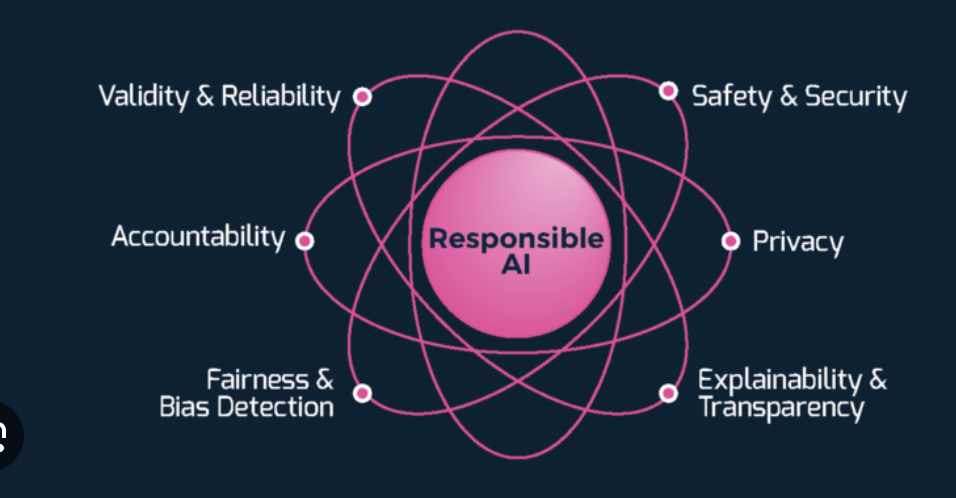Info-Tech Research Group provides a detailed roadmap to help organizations navigate and comply with complex AI regulations.

As AI rapidly transforms industries and changes operational landscapes, organizations are struggling to navigate the evolving regulatory environment. To address these challenges, Info-Tech Research Group has released a new blueprint, “Prepare for AI Regulation,” offering research findings and guidance. This resource provides IT leaders with detailed analysis and actionable strategies to ensure compliance and promote the ethical and effective use of AI.
The new resource emphasizes the increasing responsibility of organizations to protect users from potential AI-related risks, such as misinformation, unfair bias, malicious uses, and cybersecurity threats. However, many current risk and governance programs within organizations are not equipped to address the challenges posed by the integration of AI applications.
“Generative AI is fundamentally transforming our world and stands as one of the most disruptive technologies of our time,” says Bill Wong, a research fellow at Info-Tech Research Group. “While it will revolutionize our interaction with technology and the workplace, it also brings new risks, such as the potential for creating misinformation, deepfakes, and compromising the integrity of elections.”
Info-Tech advises organizations to strengthen their data and AI governance programs to comply with upcoming voluntary or mandated AI regulations.
“Organizations globally are seeking guidance and urging governments to regulate AI to ensure its safe use,” says Wong. “In response, AI legislation is developing worldwide. The main challenge is balancing the need for regulation to protect the public with creating an environment that supports innovation.”
Info-Tech’s blueprint emphasizes that for organizations, setting up and implementing responsible AI principles is essential for guiding AI development and deployment. This requires creating a strong framework with ethical guidelines, transparency, accountability, and fairness in AI applications. The research also highlights the need for IT leaders to integrate AI governance into the organization’s broader governance programs, ensuring a unified and thorough approach to managing AI-related risks and opportunities.
“Governments and regions like the US and UK adopt a context- and market-driven approach, typically relying on self-regulation with minimal new laws,” notes Wong. “In contrast, the EU has enacted extensive legislation to regulate AI and protect the public from potential risks. Moving forward, effective global AI regulation will likely require international collaboration among governments and regions.”
In “Prepare for AI Regulation,” Info-Tech outlines six guiding principles for responsible AI and associated actions for IT leaders to manage AI risks and comply with regulations:
- Data Privacy:
- Identify applicable privacy laws and ensure compliance through thorough assessments.
- Map personal data flows within business processes to track how data is collected, stored, processed, and shared.
- Apply data minimization strategies to reduce data collection and retention to only what’s necessary.
- Fairness and Bias Detection:
- Regularly audit data and algorithms to identify and address bias.
- Ensure AI systems meet accessibility and inclusiveness laws, promoting equal access.
- Use diverse data sets for training AI models to enhance fairness.
- Explainability and Transparency:
- Provide clear explanations and documentation of AI decision-making processes.
- Disclose the sources and methodologies used for training AI models.
- Implement thorough data labeling practices to ensure accuracy in training data.
- Safety and Security:
- Follow best practices for the design, development, and deployment of AI systems.
- Offer guidelines and documentation on the responsible use of AI technologies to end-users.
- Implement strong cybersecurity measures to protect AI systems from threats.
- Validity and Reliability:
- Continuously monitor and validate AI system performance for accuracy.
- Keep detailed records of data origins and history to ensure accountability.
- Regularly assess and correct errors in training and operational data.
- Accountability:
- Establish processes for human oversight and review of AI systems.
- Assign clear responsibilities for managing AI-related risks.
- Integrate AI governance with the organization’s overall risk management framework.
Info-Tech’s blueprint provides actionable strategies for organizations to navigate AI governance complexities, ensuring compliance while leveraging AI technology responsibly and ethically.